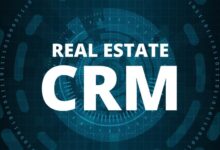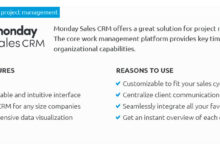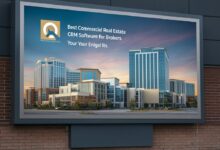Property Management CRM Software: 7 Ultimate Power Tools for 2024
Managing properties used to mean endless spreadsheets, missed calls, and chaotic tenant communication. But with the rise of property management CRM software, landlords and real estate teams are gaining powerful control over every interaction, lease, and dollar. Let’s explore how this game-changing tech is reshaping the industry.
What Is Property Management CRM Software?

At its core, property management CRM software is a centralized digital platform designed to streamline interactions between property managers, tenants, owners, vendors, and prospects. Unlike generic CRMs, these systems are tailored specifically for real estate workflows—combining customer relationship management with operational tools like lease tracking, maintenance requests, and rent collection.
Core Definition and Functionality
The term “CRM” stands for Customer Relationship Management, but in property management, it goes beyond just tracking leads. Modern property management CRM software integrates communication logs, tenant portals, automated workflows, and financial reporting into one ecosystem. This allows teams to nurture relationships while efficiently managing day-to-day operations.
- Tracks all tenant and owner communications
- Automates follow-ups and reminders
- Stores lease agreements and renewal timelines
- Integrates with accounting and maintenance platforms
How It Differs from Generic CRM Systems
While traditional CRM tools like Salesforce or HubSpot focus on sales pipelines and marketing funnels, property management CRM software is built for long-term tenant lifecycle management. For example, a standard CRM might prioritize closing deals, but a real estate-focused CRM emphasizes lease renewals, maintenance resolution times, and rent payment consistency.
“A property manager isn’t just selling a unit—they’re managing a living experience. The CRM must reflect that ongoing relationship.” — Real Estate Tech Analyst, Julia Mendez
Top 7 Benefits of Using Property Management CRM Software
Adopting the right property management CRM software can transform how you operate. From boosting tenant satisfaction to reducing administrative overhead, the advantages are both measurable and strategic.
1. Centralized Tenant and Owner Database
One of the biggest challenges in property management is scattered information—emails in inboxes, phone numbers on sticky notes, lease terms buried in folders. A robust CRM eliminates this chaos by storing all contact details, communication history, lease status, and financial records in one secure location.
- Full 360-degree view of each tenant or owner
- Searchable profiles with custom tags (e.g., “pet-friendly,” “late payer”)
- Role-based access for team members
2. Automated Communication and Follow-Ups
Manual follow-ups eat up hours. Property management CRM software automates key interactions—like lease renewal reminders, rent due notices, or maintenance updates—via email or SMS. This not only saves time but ensures consistency and professionalism.
- Set triggers based on lease dates or tenant actions
- Use pre-approved templates for common messages
- Track open and click rates for outreach campaigns
3. Improved Tenant Retention and Satisfaction
Happy tenants stay longer. With features like self-service portals, instant maintenance request submission, and responsive communication tracking, CRM systems help build trust and transparency. According to a 2023 National Association of Residential Property Managers (NARPM) report, properties using CRM tools saw a 28% increase in lease renewals.
“When tenants feel heard and supported, they’re more likely to renew—and recommend your property to others.”
Key Features to Look for in Property Management CRM Software
Not all CRM systems are created equal. To get the most value, focus on platforms that offer a blend of relationship management and operational functionality. Here’s what top-tier property management CRM software should include.
Lease Lifecycle Management
This feature tracks every stage of a lease—from initial inquiry to move-out. It includes automated reminders for renewals, digital lease signing (e-signature support), and expiration alerts. Some advanced systems even suggest rent adjustments based on market trends.
- Lease calendar with color-coded statuses
- Automated renewal offer generation
- Integration with e-sign platforms like DocuSign
Maintenance Request Tracking
A major pain point for tenants is slow response times. A good CRM includes a built-in work order system where tenants can submit requests, upload photos, and track progress. Managers can assign tasks to vendors, set priorities, and log completion notes—all within the same platform.
- Real-time status updates for tenants
- Vendor performance tracking
- Recurring maintenance scheduling (e.g., HVAC checks)
Communication Automation and Templates
Effective communication is the backbone of tenant relations. Look for CRM software that allows you to create message templates for common scenarios—like welcome emails, late rent notices, or pet policy confirmations. Automation rules can trigger these messages based on specific events.
- Personalized email/SMS campaigns
- Drip sequences for prospective tenants
- Two-way messaging with thread history
Top 5 Property Management CRM Software Platforms in 2024
With dozens of options on the market, choosing the right property management CRM software can be overwhelming. We’ve evaluated the top five based on usability, feature depth, pricing, and customer support.
1. Buildium
Buildium is one of the most popular all-in-one property management platforms, offering a powerful CRM alongside accounting, marketing, and maintenance tools. Its tenant portal is highly rated for ease of use, and the system integrates seamlessly with Zillow and Apartments.com for lead capture.
- Automated lead routing from listing sites
- Customizable communication workflows
- Mobile app for on-the-go management
Learn more at Buildium’s official site.
2. AppFolio
AppFolio stands out for its AI-driven insights and strong financial management features. Its CRM component excels in lead nurturing, with automated follow-up sequences and lead scoring. It’s ideal for mid-sized to large property management companies looking for scalability.
- AI-powered rent recommendations
- Integrated online payments and accounting
- Advanced reporting on tenant behavior
Explore AppFolio at AppFolio.com.
3. Propertyware by RealPage
Propertyware is a favorite among single-family home managers. While not as flashy as some competitors, it offers solid CRM functionality with excellent customization options. It allows managers to track tenant preferences, pet policies, and communication history in detail.
- Dedicated owner portal
- Flexible lease management
- Strong support for independent landlords
4. Rent Manager
Rent Manager is a desktop-based powerhouse with deep CRM capabilities. It’s particularly strong in data management and reporting, making it a top choice for firms managing hundreds of units. The CRM module includes detailed contact histories and campaign tracking.
- Unlimited custom fields for tenant data
- Mass communication tools
- Integration with QuickBooks and other accounting software
5. DoorLoop
DoorLoop is a newer player but has quickly gained traction for its user-friendly interface and comprehensive free plan. Its CRM features include lead tracking, automated emails, and a mobile app for tenants. It’s especially appealing to small to mid-sized operators who want affordability without sacrificing functionality.
- Free plan with full CRM access
- Easy migration from spreadsheets
- Excellent customer support via chat and phone
Check out DoorLoop at DoorLoop.com.
How Property Management CRM Software Integrates with Other Tools
No CRM works in isolation. The real power comes from integration with other systems—accounting, marketing, maintenance, and payment platforms. A well-connected ecosystem ensures data flows smoothly across departments.
Accounting and Financial Software
Syncing your CRM with accounting tools like QuickBooks or Xero eliminates double data entry. Rent payments, security deposits, and vendor invoices recorded in the CRM automatically reflect in your financial statements. This integration also improves audit readiness and tax reporting accuracy.
- Automatic transaction syncing
- Revenue recognition by property or unit
- Custom financial reports for owners
Marketing and Lead Generation Platforms
Top property management CRM software connects directly to listing sites like Zillow, Realtor.com, and Facebook Marketplace. When a prospect inquires through one of these channels, their information is instantly imported into the CRM, tagged, and assigned to a leasing agent.
- Real-time lead capture
- Lead source tracking for ROI analysis
- Automated response to new inquiries
Maintenance and Vendor Management Systems
Integrating with maintenance platforms like MaintenanceDirect or Workiz allows property managers to dispatch jobs, track vendor performance, and log repair costs—all from within the CRM. Some systems even allow tenants to rate vendor service quality, helping managers make better vendor decisions.
- Vendor database with contact and rate info
- Time-stamped work order completion
- Cost tracking by property or unit
Implementing Property Management CRM Software: A Step-by-Step Guide
Rolling out new software can be daunting, but a structured approach ensures smooth adoption and maximum ROI. Follow these steps to implement your CRM successfully.
Step 1: Assess Your Current Workflow
Before choosing a CRM, map out your existing processes. Identify pain points—like delayed rent collection or poor tenant communication—and define what success looks like. This helps you prioritize features during vendor selection.
- Document all tenant touchpoints
- Identify redundant or manual tasks
- Set measurable goals (e.g., reduce vacancy by 15%)
Step 2: Choose the Right Platform
Compare shortlisted CRMs based on your needs. Request demos, ask for customer references, and test free trials. Pay attention to mobile accessibility, onboarding support, and scalability.
- Evaluate ease of data migration
- Check for third-party integrations
- Assess customer support availability
Step 3: Migrate Data and Customize Settings
Import tenant, owner, and lease data carefully. Use CSV templates provided by the CRM to ensure clean uploads. Then, customize fields, workflows, and communication templates to match your brand and processes.
- Clean and deduplicate data before import
- Set up user roles and permissions
- Configure automation rules and reminders
Step 4: Train Your Team and Launch
Provide hands-on training for all users. Start with a pilot group—like your leasing team—before rolling out company-wide. Encourage feedback and adjust settings as needed during the first 30 days.
- Host live training sessions
- Create quick-reference guides
- Assign internal CRM champions
Common Challenges and How to Overcome Them
Even the best property management CRM software can face adoption hurdles. Here are common issues and proven solutions.
Resistance from Staff
Team members used to spreadsheets or paper files may resist change. Address this by involving them early in the selection process and highlighting how the CRM reduces their workload—not adds to it.
- Focus on time-saving benefits
- Offer incentives for early adopters
- Provide ongoing support
Data Migration Errors
Transferring large volumes of data can lead to duplicates, missing fields, or incorrect categorizations. Always back up your data, validate imports in stages, and run test reports before going live.
- Use staging environments for testing
- Validate critical data (e.g., lease dates, rent amounts)
- Engage vendor support for complex migrations
Underutilization of Features
Many teams only use 30–40% of their CRM’s capabilities. Combat this with regular training, feature spotlights, and performance reviews that tie CRM usage to KPIs like lease conversion rate or tenant satisfaction.
- Schedule quarterly refresher training
- Create internal documentation
- Monitor feature adoption via analytics
Future Trends in Property Management CRM Software
The CRM landscape is evolving fast. Emerging technologies are making these systems smarter, more predictive, and more integrated than ever before.
AI-Powered Tenant Screening and Predictions
Future CRM platforms will use artificial intelligence to analyze tenant applications, predict payment reliability, and even suggest optimal rent prices based on market data and unit features. This reduces risk and increases revenue accuracy.
- AI-driven credit and background analysis
- Predictive churn modeling (who might not renew)
- Dynamic pricing suggestions
Enhanced Mobile and Self-Service Capabilities
Tenants expect mobile-first experiences. Next-gen CRM software will offer richer mobile apps with push notifications, photo uploads for maintenance, and voice-enabled chatbots for instant support.
- In-app messaging with AI assistants
- Mobile check-in/check-out for move-ins
- QR code access to unit manuals or policies
Deeper Integration with Smart Home Technology
As smart locks, thermostats, and security cameras become standard, CRM systems will integrate with IoT devices. Imagine a CRM that logs when a tenant unlocks their door for the first time (confirming move-in) or detects unusual water usage (triggering a leak alert).
- Automated move-in verification
- Proactive maintenance alerts
- Energy usage reporting for green leasing
What is property management CRM software?
Property management CRM software is a specialized platform that helps landlords and property managers organize tenant and owner relationships, automate communications, track leases, and manage maintenance—all in one system.
How does CRM software improve tenant retention?
By enabling faster response times, personalized communication, and self-service portals, CRM software enhances tenant satisfaction, leading to higher renewal rates and reduced turnover costs.
Can small property owners benefit from CRM software?
Absolutely. Even solo landlords managing a few units can save time and improve professionalism with CRM tools. Platforms like DoorLoop and Propertyware offer affordable plans tailored to small-scale operators.
Is data secure in property management CRM software?
Reputable CRM providers use bank-level encryption, regular backups, and compliance with data protection regulations (like GDPR or CCPA) to ensure your tenant and financial data remains secure.
How much does property management CRM software cost?
Prices vary by provider and scale. Some, like DoorLoop, offer free plans. Others charge $25–$100+ per month based on the number of units. Enterprise solutions may cost more but include advanced analytics and support.
Property management CRM software is no longer a luxury—it’s a necessity for staying competitive, organized, and tenant-focused. From automating routine tasks to providing deep insights into tenant behavior, these platforms empower property managers to work smarter, not harder. As technology continues to evolve, the integration of AI, mobile access, and smart home data will only deepen the value of CRM systems. Whether you manage a single rental or a multi-state portfolio, investing in the right CRM can lead to higher occupancy, lower costs, and stronger relationships. The future of property management is digital, connected, and intelligent—and it starts with the right CRM.
Further Reading:



